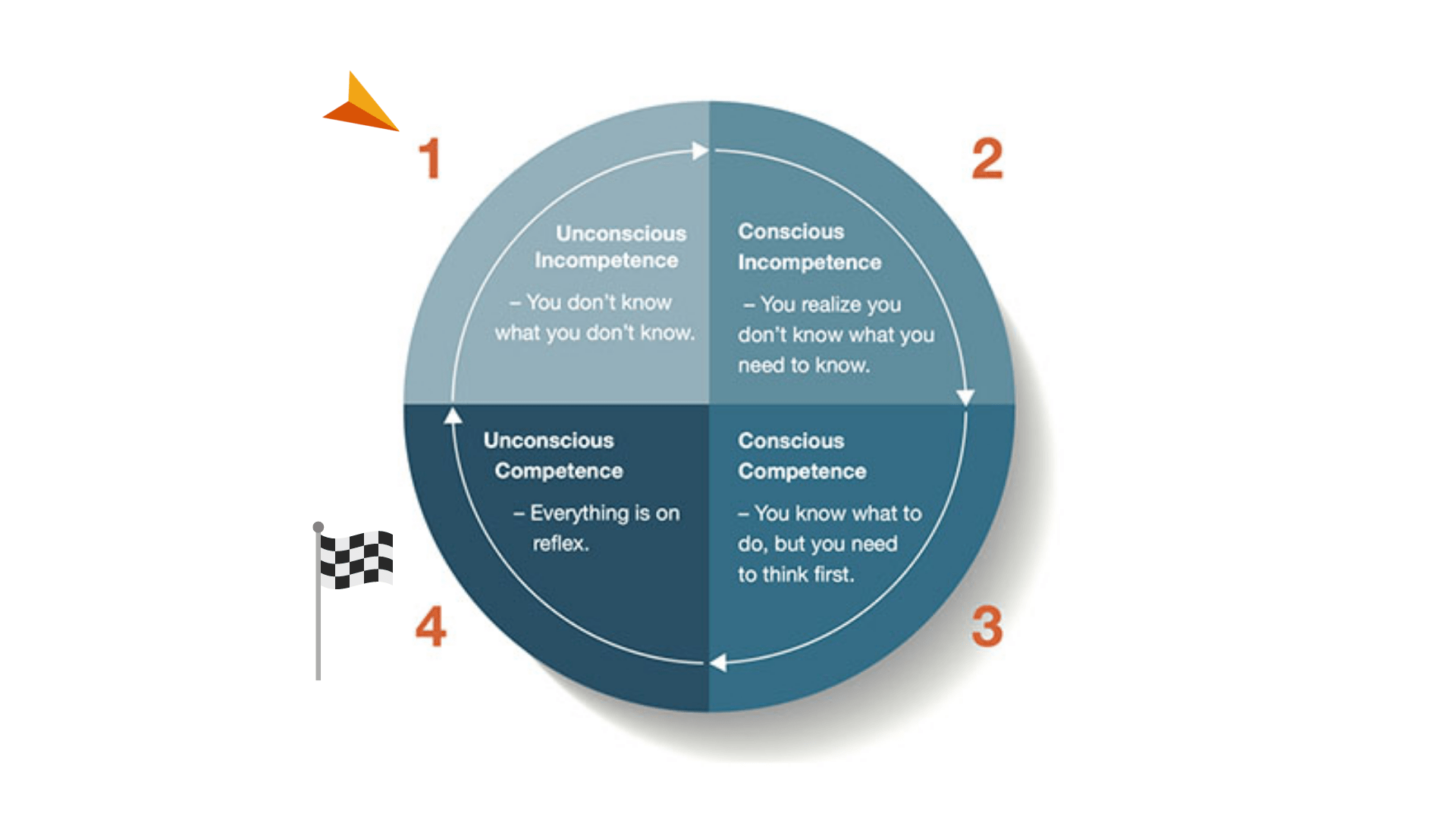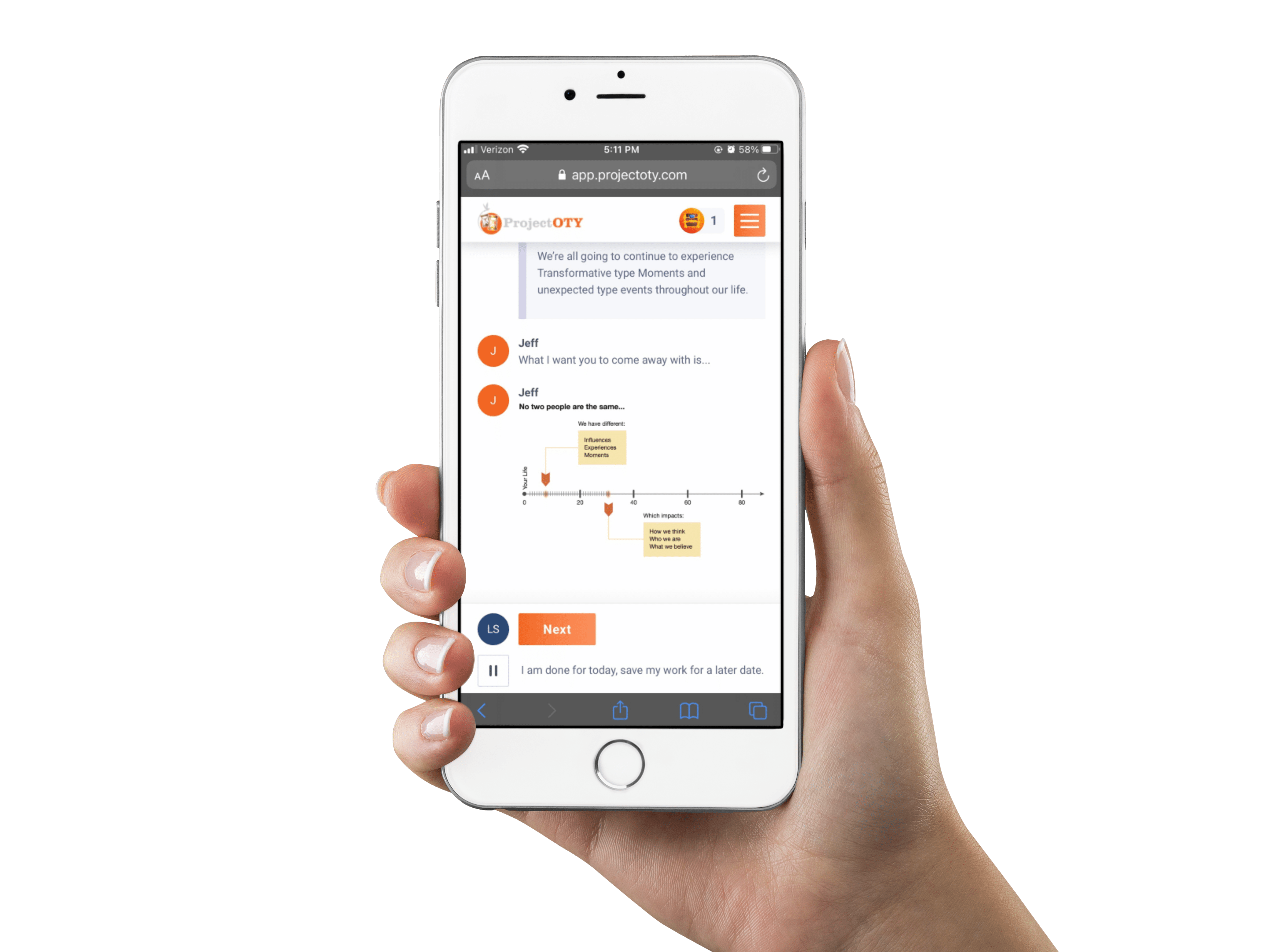It’s that time in your life…
You’re about to finish your college degree and graduate, and you can’t wait to be done. No more studying and exams. You’re excited by the prospect of starting the next chapter of your life.
You’re likely wondering. “What’s next? What’s life like after graduation? Does it get any easier?”
(As a recent college graduate, I get it.)
You want to make the most of life after graduation, but it can feel a little overwhelming just thinking about it. Moving to a new city, finding a job, and putting all the pieces of your life puzzle into place.
(Side note: The Project OTY platform can get you organized and on track to design your future. It helped me at my post-grad “crossroads”.)
Whether you’re reading this well before graduation or after getting handed your diploma, I want to share life insights since I graduated at the end of 2019. Some of these insights were harder to learn than others.
In the end, I dig into the big questions…”Does life get easier after college? Does it get better?”
Here we go…
1. The “best days” of your life aren’t over.
I felt like this was necessary to share first.
College is a fun time. There are parties, games, Homecoming, Greek life, “fest” weeks, and all kinds of opportunities to meet and hang out with friends.
There are those that will have you believe that these are your “best days” and once you graduate, the “good times” are behind you.
I’ve also heard the question: “Is life boring after college?”
To that, I say life is always what you make of it. Your “best days” are behind you to the level that you believe that’s the case.
Life after graduation can be just as fun, if not more exciting. Being an adult doesn’t mean you have to stop enjoying life. In fact, if you don’t allow yourself to relax and have fun, are you truly living?

Good memories may be behind you, but great ones that you’ve yet to experience are ahead.
Personally, I’ve found life to be more exciting after college because I have the freedom to pick new hobbies, travel the world, learn new skills, and meet new people. All of this takes place while making money for the work I do (I can’t say the same for all the undergrad hours I spent studying).
2. You’ll want to learn how to put your money to work for you.
Maybe you can relate to this feeling:
I graduated with college loans. I was stuck feeling “behind” in life and wondering how I was going to catch up. Up to that point, I felt like having money was the ticket to being happy and free. After graduating, I felt like I was shackled with a ball and chain.
There’s so much that college doesn’t teach you about things like taxes (deductions, brackets, etc.), credit cards and the power of their perks, investing, planning for retirement (and what you need to save for the life you’ll want), and buying assets (rather than liabilities). The list goes on, but it goes beyond the simple advice of “save your money” for emergencies, life crises, and retirement. After hearing this advice for so long, you enter life and you’re scrambling trying to figure everything out when it comes to finances.
Taking the time to learn how to become financially literate goes a long way. It’s something people don’t talk about enough. Your money mindset and habits can help you make your money work for you. Doing this early does a lot of good for your future and eventual retirement.
I wanted to share a great list of books here to help you better understand the book you need for the specific financial goal you have in mind. For example, the list includes a book on managing student loan debt and another about increasing your income. The more you learn, the more you will feel like you own your money, rather than the other way around.
3. You will start to seriously question what’s important to you and your future.
In college, you might have pictured success as getting that dream job that was motivating you to study for finals. Or, renting a sky-rise apartment and making six figures every year.

Through years of school, you often get shepherded into a career track or vision of life that’s “practical” and fully mapped out. You’re used to getting prompted in school and life (so far) to take the next class, work on the next project that’s handed to you, and follow a plan that’s shaped by what you learn in the classroom, the influences around you, and your life experiences up to this point.
After college, you might realize your personal definition of what you want from life changes. In gaining a new level of independence, you learn you want something more from life.
A job at a corporate company may have sounded great, but then you realize that the culture isn’t for you. You want to work for a smaller company, or you realize you want to go into business for yourself.
Instead of living in the city, you might realize you want some peace and quiet and the ability to get away from traffic. You want roommates. You want to adopt a dog or a chinchilla…
Instead of making six figures, you realize you can be comfortable with an 80k annual salary to afford the conveniences that are essential for you while working a maximum of 35 hours a week.
Success doesn’t mean taking over the world and building a billion-dollar business. You don’t have to hustle to be the “best” or according to someone else’s dream.
Don’t compare yourself to the success of other people. You are living your own life, and your definition of success should feel right for you.
Related: How to Define Success For Your Life (+ Examples)
4. You’ll lose touch with college friends and acquaintances and learn what friendship and support really mean to you.
This was a harder lesson to learn. I’m the kind of person that likes to stay in touch with everyone and the thought of drifting apart didn’t occur to me. I knew romantic relationships could end, but life had not prepared me to consider the “life cycle” of friendships as I left college.
The friendships you have during college don’t always translate outside of college.
What no one teaches you (and what you personally learn), is that people will come and go in life. The people you cross paths with are sometimes the best people to have in your life at that particular moment.
You graduate and go your separate ways. That’s life. If you grow apart, know that it can sometimes be for the best. Most importantly, it’s not something to overly beat yourself up about.
In life, you’ll connect with so many people (whether it’s at work or in the produce section of the grocery store), and these people might be completely different than the people that you were friends with in college.
You also learn who’s there for you and who isn’t. There will be those that will be happy to cheer with you and for you, and those who are absent and leave you on “read”. Learning who’s on your team in life is critical, as well as how you show up and support those you care about.
5. Learning doesn’t just stop, it happens all the time.
After you graduate, whatever you learn in school will be put to the real test by actually living and doing.
Whether it’s a medical procedure, executing a line of Javascript, or a trick to formatting an Excel spreadsheet, you’ll master and perfect what you know. While it might be nerve-wracking to perform what you previously might have only memorized from a textbook, applying the lesson in life is the best way to perfect it.

Life becomes your hands-on classroom. You’ll make mistakes. You try again and learn how to do things better. Plus, in your early career, you learn if you want to continue in the profession you studied for.
Beyond that, every moment in life is an opportunity to learn if you let yourself see the lesson in life’s good and bad moments.
Life will throw you curveballs. While “difficult” might be an understatement for some of these crucial moments, they give you a powerful opportunity:
They show you how to change. You learn how to do things differently. You learn how to grow stronger.
It’s a different kind of learning than textbooks and assessments in school.
You’ll always be in one of the four stages of learning, to learn what you need to learn in life.

6. Being an adult isn’t bad, but it still requires a lot of unglamorous work.
Post-grad life isn’t the rainbows and butterflies that we thought of when we played “house” in kindergarten.
There are key things that you need to buckle up and do to get your affairs in order to live your adult life. For everyone, this is going to look different.
It could be any number of “adulting” tasks you need to take care of: Filing taxes, finding a new place to live, figuring out health insurance, applying to graduate school or professional schools, getting a part-time job, getting a full-time position, organizing payments for your student loan, job hunting, etc.
Through all of that, you want to find time to eat, sleep (for a few more hours a night than you did in undergrad), exercise or move your body during the day, and dedicate some downtime to recharge and have a hobby or two.
An Article You Might Like: 5 Key Time Management Tips to Better Manage Your Busy Life
You’re going to have to-do lists. You’re going to have worries. However, you aren’t alone in doing the hard “adulting” work.
7. Your first job is not your forever job.
As a recent grad, I get it. You want to get a good job that you’re not only qualified for, but paves the way for you to live happily and comfortably until it comes time to retire.
However, this creates a lot of stress when it comes time to scope out potential employers and apply for jobs. I remember really stressing about my career trajectory and how my first job was going to essentially dictate the rest of my life.
In reality, this was a lot of pressure to put on myself as a human…things change. I’m here to tell you that you will change. And, it’s okay.

The reality is that you’re going to change roles throughout your life. You may change career paths as well. If you don’t believe me, take a look at profiles on LinkedIn. Ask professionals you know about their major and first job out of college versus their path now.
Personally, I have met very few individuals that are doing work in a role and field that they originally planned in college. Case in point, I studied food science and nutrition, and my first job out of college was with an IT and Information Security company.
We’re all human, and we’re all capable of change.
Don’t put unnecessary pressure on yourself to have your ducks in a row and find the perfect job out of college.
8. You are free to reinvent your future path whenever and however you want.
College can sometimes be the first place in life where you take a big leap in reinventing who you are as a person.
I know for me it was the chance to really start exploring a future career and figure out what I wanted to do in life. I went to college and changed my major a couple of times until I settled on a path in nutrition and food science to finish my degree.
Like I was, you might have become used to following a set path in college based on the major and minor you pick. Classes are spelled out for you. You have a weekly schedule of what you need to do and when you need to go to class. The structure of school doesn’t allow the freedom to do what you want, and for the time being you get used to having a path dictated for you.
If you ever changed your major, you might have found it to be a little difficult, especially as you’re trying to complete your required classes in 4 to 5 years (to walk away with as little college debt as possible).
Once you graduate, the process of changing your path in life looks a little different. It comes with different challenges in changing the path you follow. You make your schedule. You decide what job to take, what car to buy, and what food to get at the grocery store.
If you want to move cities or change jobs, there’s no registrar or college career counselor to pump the brakes.
You’re the person who gets to pick your career path and how often you change it. You dictate your path.
Related Article: How To Own Your Life & Dreams
Does life get easier after college?
This is a question I thought about often in college. As someone who was not in love with my major and future job prospects, and working four jobs to pay tuition, I wondered…”Does it get any better? Or is this just the start of the rest of my adult life?”
If you’re wondering the same, this is how I would answer the question now.
The answer isn’t that life gets easier or harder. It’s different. The “different” aspect in itself is hard. You drastically change your life when your life becomes about the choices and paths taken outside of a K-12 or college context.
The freedom of life after college can be both inspiring and anxiety-inducing. It can cause a lot of questions and second-guessing.
The first part of life after college is adjusting to a newfound path outside of the academic space and finding your little niche in a bigger world than the one you’ve known.
There’s no guidebook to playing the game of life after college. Life is left up to what you want to make it. No one is grading you. No one is measuring you and comparing you to anyone else – more than you.
Life is different after college. It is what you want to put into it. Let it be all about playing, creating, discovering, caring for yourself, and pursuing the path that you truly want.
You are the leader of your life. That’s pretty amazing and exciting. Let me be the first to tell you: You got this!
Start Your Post-Grad Journey Off Right
If the thought of the future has you feeling overwhelmed, Project OTY is your guide. Our platform walks you through a step-by-step process to go from feeling confused or anxious about your future to confidently achieving your dreams with a fully organized plan of action.
No more wondering about your next steps or sacrificing what you want from life. Design the life you want to be living…and go make it happen. Get started with a free trial of Project OTY!



